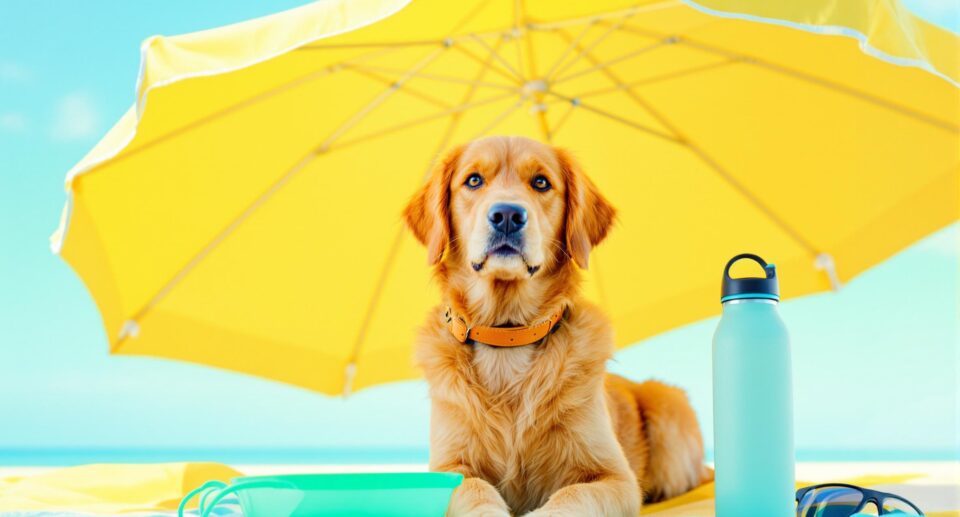
Whether you’re looking forward to letting your dog play in the sand, swim in the sea, or fetch frisbees along the shore, the beach is a great place to make memories and stay cool on a hot summer day. Make sure you’re ready for the best dog beach day ever with these safety tips.
Getting Ready For The Dog Beach
While you may think of fleas and ticks as you get ready for hike in the woods, parasites lurk at beaches too. Ticks can lurk in the long grass on the sand dunes and may even take to the sand in search of a host.
If you use a topical flea and tick preventative, make sure to apply it at least 24 hours prior to your beach trip, especially if your dog likes to splash in the surf.
Other dog beach essentials include extra water to keep your dog hydrated, a pop-up travel bowl, treats, a long leash, blankets, towels, a waterproof backseat cover, and poop bags.
While your dog’s coat protects most of their skin from sun damage, they can still get sunburn on their nose, ears, belly, and other areas where their coat is sparse. Use Pure and Natural Pet Organic Moisturizing Nose Rescue to protect your dog’s nose against sun damage.
Beating The Heat At The Dog Beach
The summer heat can be overwhelming for your furry friend. Active dogs do not always stop playing when they’re overexerting, putting them at increased risk for heatstroke. If you’re at the beach during the hottest hours of the day, around noon to 4 PM, try to stay close to the water. Have your dog take breaks from exercise periodically, even if they’re splashing in the sea.
Never let your dog drink the salty sea. Offer your dog fresh water often. You can also give your dog small doses of unflavored Pedialyte while you’re at the beach to help keep them hydrated.
Keep in mind that the sand can be up to 30 degrees hotter than the ambient temperature. When it’s 90 degrees Fahrenheit, the sand can be 120 degrees, hot enough to burn your dog’s paws. To keep your dog’s paws safe, consider carrying them over the hot sand, or have them wear booties if they’re too big to carry.
Dog Beach Etiquette
Before you go, make sure your local beach is dog-friendly. Some only allow dogs during the off-season, if at all. Some allow you to let your dog off-leash, while others are on-leash only.
Always pick up your dog’s poop at the beach and dispose of it in a trash can or carry it out with you. When it rains, dog poop, buried or not, washes into the ocean and contaminates the water with harmful bacteria like e.coli and enterococci. High levels of bacteria from dog poop can make the water unsafe to swim in, leading to beaches getting shut down to the public.
If your beach permits off-leash dogs, you may still want to use a leash or long line to keep your dog near if they’re not fully trained.
If you’re new to taking your dog for beach trips, or if your dog gets nervous around crowds, try going early in the morning or in the evening for a quieter experience.





